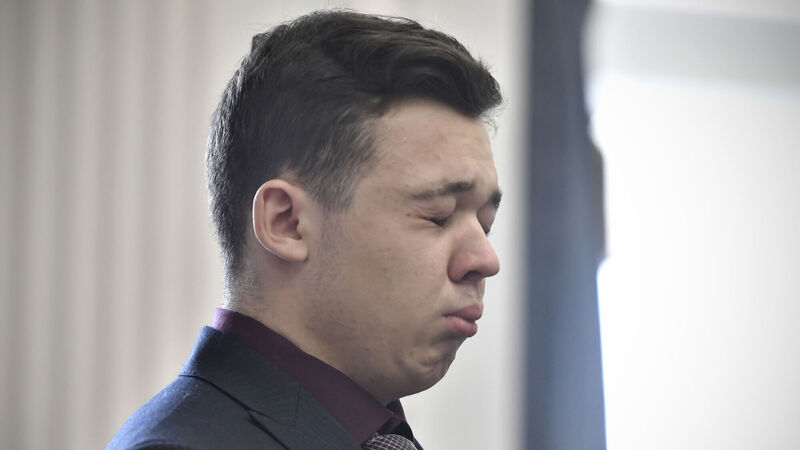Maeve Higgins: The big problem with white vigilantism and white male tears

Kyle Rittenhouse closes his eyes and cries as he is found not guilty on all counts. Picture: Sean Krajacic/The Kenosha News via AP, Pool
These days in the US, we are witness to a new version of crying in public, this time in a legal setting. It’s highly potent.












